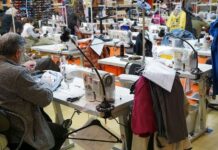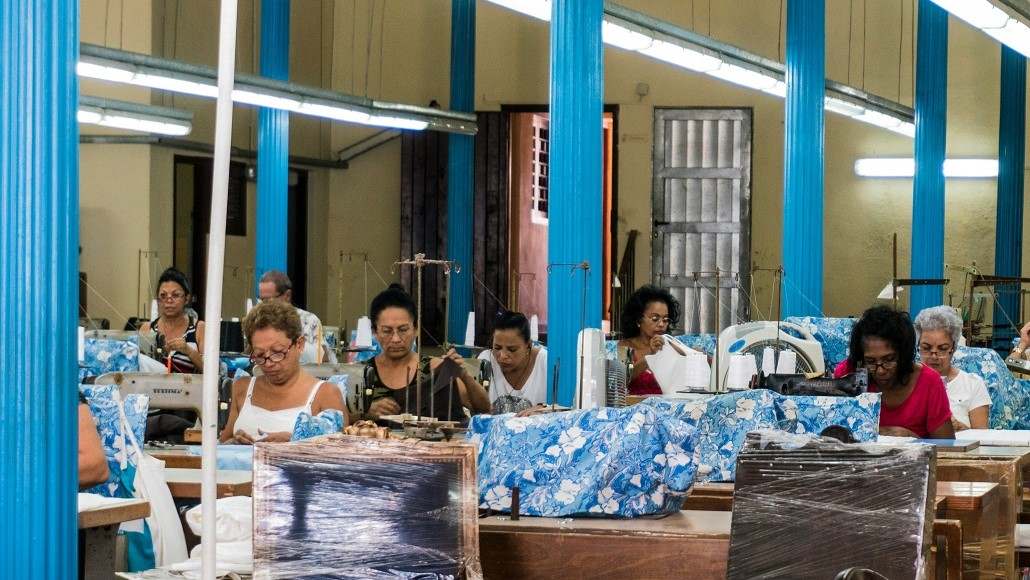A recent report from the Joint Committee on Human Rights (JCHR) has raised alarms regarding the United Kingdom potentially becoming a market for goods produced through forced labor, particularly within the textiles and apparel industries.
The JCHR’s findings focus on the issue of forced labor embedded in international supply chains of products imported or sold in the UK, deliberately omitting cases of forced labor occurring within the UK itself, as well as issues related to human trafficking into or within the country.
The report underscores that human rights violations are prevalent in vital industries, leading to a high likelihood that products made under such conditions are being offered in the UK market. This situation has arisen partly due to the inadequacy of current UK legal frameworks to effectively tackle the complexities of abuses occurring in global supply chains.
In fact, the UK imports goods valued at over $26 billion from five sectors known for high incidences of forced labor: electronics, garments, fish, timber, and textiles.
Specific Instances of Forced Labor in Supply Chains
During its inquiry, the JCHR uncovered specific instances of forced labor associated with UK supply chains, particularly in the cotton sector. Alarmingly, it is estimated that one in five cotton garments worldwide might be linked to forced labor practices, particularly from the Xinjiang region of China.
Rahima Mahmut, the UK director of the World Uyghur Congress, provided testimony about the systematic forced labor and displacement experienced by Uyghurs and other ethnic minorities in China. Despite a ruling by the Court of Appeal in the case of R (World Uyghur Congress) v National Crime Agency, Mahmut expressed frustration over the lack of progress in utilizing the Proceeds of Crime Act (POCA) to investigate these matters.
On January 22, 2025, Mahmut informed the committee that since a judgment in July 2024, the National Crime Agency (NCA) had not yet made a decision on whether it would investigate the connections between cotton imports and forced labor as highlighted by the World Uyghur Congress. When the NCA met with the committee on April 23, 2025, this critical issue remained unresolved, and as of July 3, no public statement had been made by the NCA regarding it.
“Due to legislative gaps, we had to resort to criminal law and the Proceeds of Crime Act, as there is currently no other law. The lack of appropriate legislation in the UK is shocking. It is an outlier,” Mahmut asserted during her testimony.
Recommendations to Combat Forced Labor in Imported Textiles
The report proposes that businesses be mandated to conduct comprehensive due diligence on their supply chains, with penalties for non-compliance. Additionally, it calls for the establishment of legal avenues through which victims could seek justice in UK courts.
The JCHR also advocates for implementing import bans on goods associated with forced labor, mirroring actions taken by the United States and the European Union. The report urges the government to clarify the responsibilities for detecting and seizing these illicit products and to establish robust oversight systems for enforcing new import regulations.
Lord David Alton, chair of the Joint Committee on Human Rights, commented, “Through this inquiry, we have uncovered appalling evidence of human rights violations across various industries integral to UK trade. While other countries have made strides to eliminate these abhorrent practices from their supply chains, the UK has fallen behind.”
Industry Demands Swift Action from the UK Government
Following the JCHR’s report on Forced Labor in UK Supply Chains, a collective statement was released by industry organizations, including the Ethical Trading Initiative, the British Retail Consortium, the Corporate Justice Coalition, and the Trades Union Congress.
These organizations have endorsed the committee’s call for mandatory Human Rights and Environmental Due Diligence (mHREDD) legislation, aimed at holding businesses accountable for preventing human rights abuses and environmental degradation in their supply chains.
They urge the government to take prompt action to establish responsible business practices as the norm rather than the exception. Modern slavery remains a pervasive issue, affecting over 27 million people worldwide and generating illegal profits estimated at $236 billion annually.
Dominique Muller, director of the Corporate Justice Coalition, stated: “A robust Business, Human Rights and Environment Act will address forced labor, human rights abuses, and environmental damage across both private and public sectors. We look forward to collaborating with the government on this act to promote legislation that features clear regulations, strict enforcement, and genuine remedies for both corporations and the communities they impact.”

































